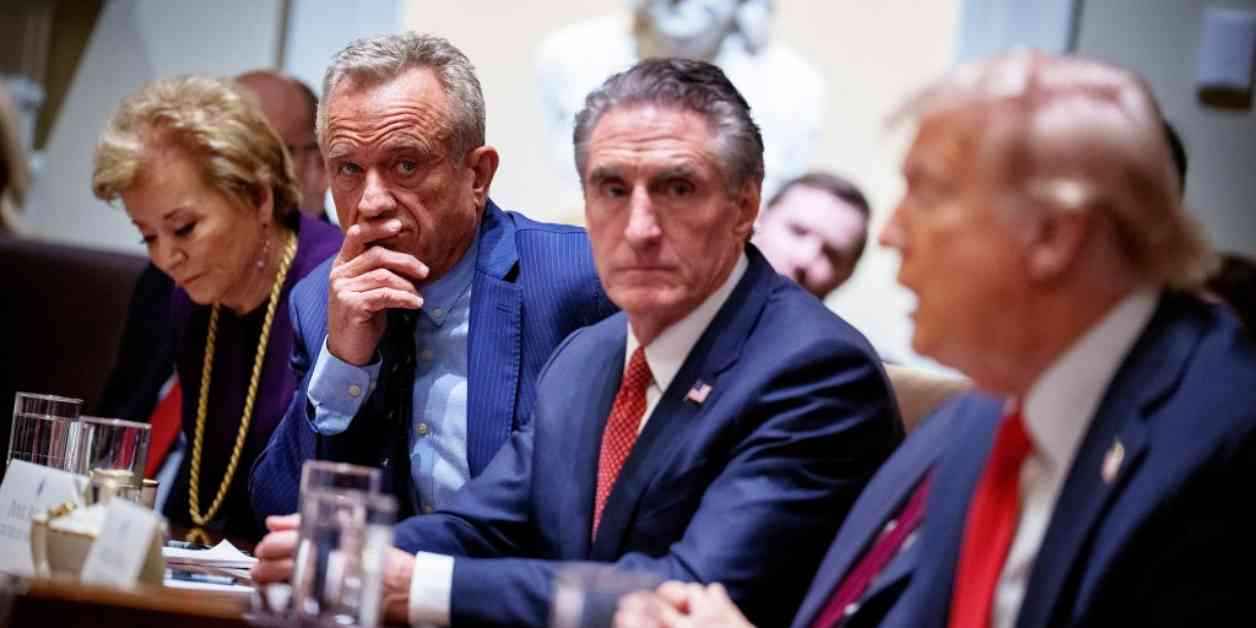Amidst a nation grappling with the aftermath of a pandemic, another crisis looms large—measles. The resurgence of this highly contagious disease has sparked concern, with Health and Human Services Secretary Robert F. Kennedy Jr. at the forefront of the nation’s response. The latest outbreak, which has infected over 100 individuals and claimed the life of a child in Texas, serves as a stark reminder of the importance of vaccinations and public health measures.
Kennedy, a vocal critic of vaccines, addressed the situation during President Donald Trump’s recent Cabinet meeting. Despite downplaying the seriousness of the measles outbreak, citing four such occurrences this year alone, the tragic death of an unvaccinated school-age child in West Texas underscores the dire consequences of this preventable disease. Kennedy’s apparent absence from HHS headquarters and lack of direct action to address the outbreak has raised concerns among department officials and the broader public health community.
In the world of politics, the specter of measles poses a unique risk for the Trump administration and Republican lawmakers. With the midterm elections on the horizon, the potential fallout from a widespread disease outbreak following Kennedy’s appointment and government cutbacks in pandemic preparedness looms large. GOP strategists warn of the political ramifications of any missteps in handling public health crises, highlighting the delicate balance between policy decisions and real-life consequences.
As the nation grapples with the resurgence of measles, prominent figures weigh in on the implications of this public health crisis. Senator Lisa Murkowski emphasizes the need for vigilance in monitoring communicable diseases, particularly measles, while billionaire Elon Musk’s erroneous statements on public funding for anti-ebola efforts underscore the complexities of pandemic response. Agriculture Secretary Brooke Rollins pledges financial support to combat the economic and health impacts of the avian flu outbreak, further emphasizing the interconnected nature of public health and economic stability.
Looking back at recent history, the Trump administration’s handling of the Covid-19 pandemic emerges as a pivotal moment in shaping public attitudes towards vaccines and government intervention. The economic losses and public health measures implemented during the pandemic sparked political divisions, with many questioning the efficacy and safety of vaccines. Trump’s subsequent reversal on vaccine mandates and the appointment of Kennedy as HHS Secretary showcase the administration’s evolving stance on public health policy.
Kennedy’s controversial views on vaccines, including his advocacy against the MMR shot and unfounded claims linking vaccines to autism, have drawn criticism from experts and lawmakers alike. His refusal to endorse the measles vaccine puts him at odds with the majority of Americans who support vaccination efforts. Representative Joaquin Castro condemns the administration’s decision to appoint a vaccine skeptic to a key public health position, highlighting the need for evidence-based policymaking in combating infectious diseases.
In the midst of conflicting viewpoints on vaccines and public health policy, Senator Roger Marshall shifts the focus to other figures, blaming Dr. Anthony Fauci and President Joe Biden for contributing to vaccine hesitancy and the measles outbreak. Marshall’s comments underscore the political polarization surrounding public health issues and the challenges of navigating competing narratives in a highly charged environment. The blame game intensifies as various stakeholders seek to assign responsibility for the resurgence of preventable diseases in the face of widespread misinformation and skepticism.
As the nation grapples with the complex interplay of politics, public health, and personal beliefs, the measles outbreak serves as a sobering reminder of the importance of evidence-based decision-making and collective action. In a rapidly changing landscape where misinformation spreads as quickly as infectious diseases, the need for leadership, clarity, and a united front against preventable illnesses has never been more critical. As the nation looks towards the future, the lessons learned from this crisis will shape public health policy and political discourse for years to come.


